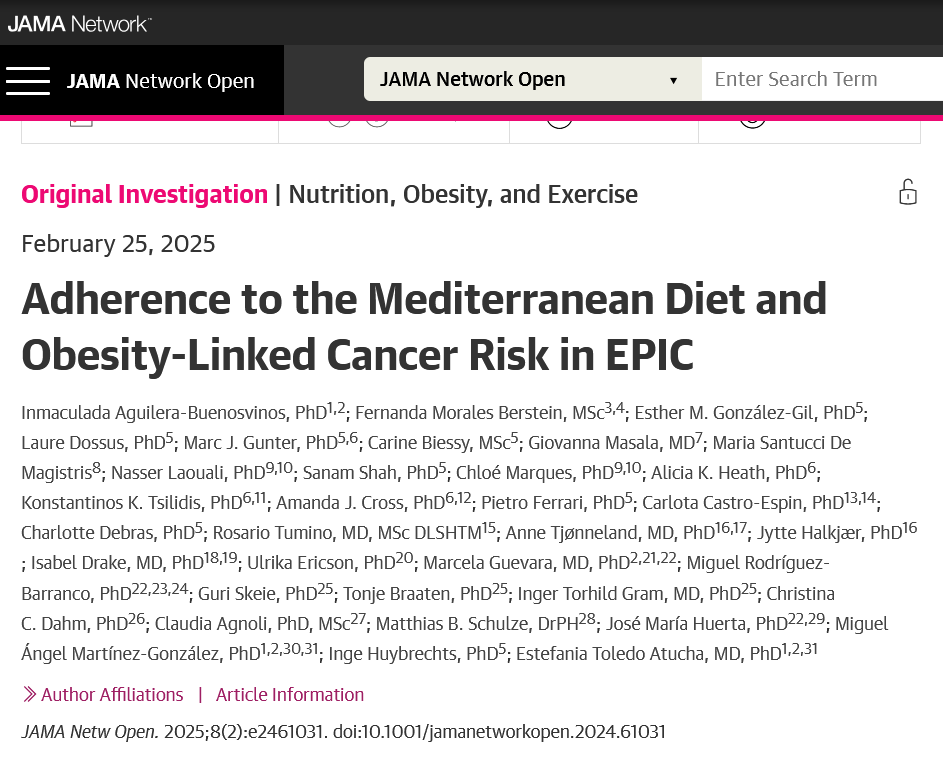
Importance Adherence to the Mediterranean Diet (MedDiet) has been associated with a lower incidence of cancer and reduced weight gain. These associations suggest a potential role for the MedDiet in lowering the risk of obesity-related cancers (ORCs). Obesity is a known risk factor for various cancers and shows an inverse association with MedDiet adherence.
Objective To examine the association between adherence to the MedDiet and the risk of ORCs, considering the possible mediating role of adiposity.
Design, Setting, and Participants This prospective cohort study analyzed data from the European Prospective Investigation Into Cancer and Nutrition (EPIC) study, which enrolled participants aged 35 to 70 years from 1992 to 2000 across 23 centers in 10 countries. The data analysis was conducted from March 1 to May 31, 2023.
Exposures Dietary intake before baseline was evaluated using country-specific, validated questionnaires administered at recruitment. Adherence to the MedDiet was scored on a 9-point scale and categorized as low (0-3 points), medium (4-6 points), or high (7-9 points).
Main Outcomes and Measures The primary outcome was the incidence of ORCs, classified according to the 2015 International Agency for Research on Cancer criteria. Multivariable Cox proportional hazards regression models were used to assess the association between MedDiet adherence and ORC incidence. Mediation analyses were conducted to evaluate the role of waist to hip ratio and body mass index in this association.
Results A total of 450 111 participants were included in the study (mean [SD] age, 51.1 [9.8] years; 70.8% women) and followed up during a median (IQR) time of 14.9 (4.1) years. Among participants, 4.9% experienced an ORC (rates, 0.053, 0.049, and 0.043 per person-year in the low, medium, and high MedDiet adherence groups, respectively). Participants with high adherence to the MedDiet (7-9 points) had a lower risk of ORC compared with those with low adherence (0-3 points) (hazard ratio [HR], 0.94; 95% CI, 0.90-0.98). A similar inverse association was observed for participants with medium adherence (4-6 points vs 0-3 points). However, mediation analyses did not show associations of waist to hip ratio or body mass index between MedDiet adherence and ORC risk.
Conclusions and Relevance These findings indicate that higher adherence to the MedDiet is associated with a modest reduction in the risk of ORCs, independent of adiposity measures. Further research is needed to clarify the mechanisms by which the MedDiet may contribute to cancer prevention.


